How Safe Is Costa Rica?
Costa Rica has become one of the most popular expat and digital nomad destinations in Latin America, known for its natural beauty, relaxed lifestyle,...
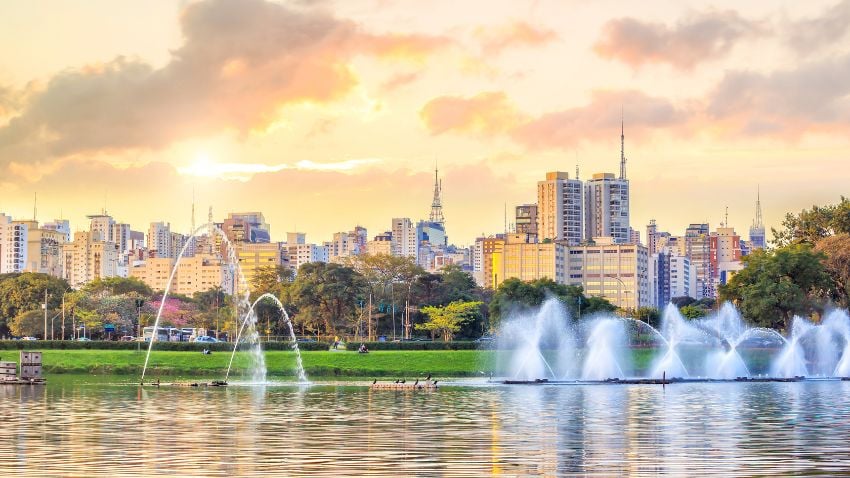
7 min read
Have you ever dreamt of dancing the tango in Buenos Aires, sipping Malbec wine amidst Argentina's vineyards or feeling the spray from Iguazu Falls on your face? South America is an alluring continent, teeming with natural splendour and vibrant cultures. But let's get real for a second - how much do we actually know about safe places to visit in South America? Can you confidently name the safest cities?
Perhaps not. It can be tricky navigating this maze of information alone, right? Not to worry, though! In this guide, you'll uncover key insights into safe travelling across diverse South American countries.
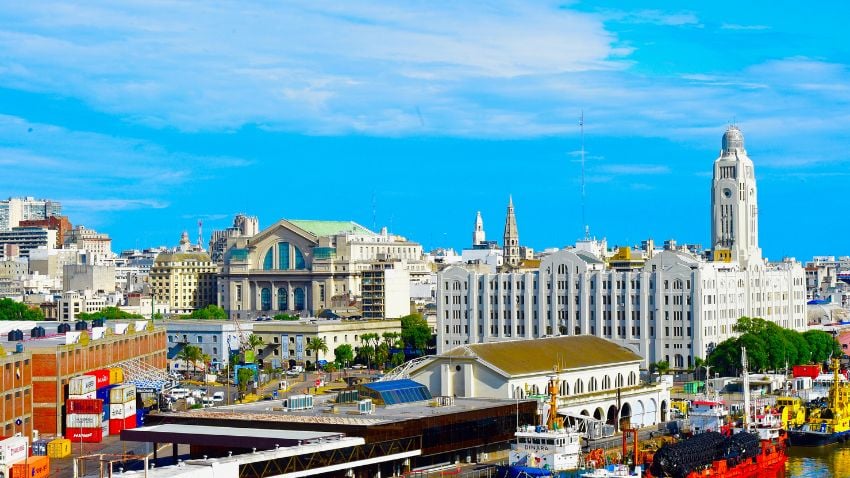
Montevideo, Uruguay
South America is a diverse continent, offering vibrant cultures, stunning landscapes, and an array of experiences. Yet, safety concerns can be a roadblock for many considering travel or relocation. But fear not. There are plenty of safe places to visit in South America, and we'll talk about it now.
The question, 'Is South America safe?” isn't straightforward because it depends on where you're headed. Each country has unique characteristics affecting crime rates and general safety levels.
In this episode of the Expat Money Show, Ernie Baca and I talk about some of the safety concerns, tips and tricks, and anything to do with safety and security in Latin America.
If we look at the safest South American countries - Chile stands out due to its lower crime rate. At the same time, Uruguay scores high when considering factors like political stability and low violent crime numbers.
A key element towards staying safe abroad is understanding local norms and knowing which areas may pose risks, such as petty theft or larger issues linked to civil unrest. Travel insurance provides another layer of protection against unexpected situations while visiting any South American country.
I cannot stress enough the importance of personal responsibility regarding safety precautions, whether hiking through the Andes mountains or sipping Malbec wine by Argentina’s colonial architecture.
1) Stay Informed:
Make sure you know about any recent incidents or disturbances before setting off on your trip. Check government-issued travel advisories regularly.
2) Avoid Walking Alone At Night:
In bigger cities, remain in brightly lit places and don't go unaccompanied after dark. This is a common-sense safety measure that applies anywhere.
3) Balancing The Art Of Blending In
The dance of belonging without losing yourself is delicate. Perhaps you’re thinking of absorbing the rhythm of local life by carefully choosing your attire. Long story short, it’s uncomfortable to stand out too much.
4) Navigating Public Transportation
When using public transport, choose seats where you can have a wide view, avoid opening your bag, make sure it is closed tightly and keep it with you at all times.
5) Crafting A Customized Emergency Kit
You might get injured, sick, jet-lagged, etc. After all, your body might need to adapt to a new climate. Just in case, it’s important to be protected against setbacks, too. Therefore, preparedness becomes your ally. This doesn’t mean you’re fearful of anything, though. At the end of the day, “Health is wealth” is way more than a quote – it’s a law of success.
South America's charm is truly found in its diversity. You'll find everything from the energetic hustle and bustle of big cities like Sao Paulo to the tranquil beauty of Patagonia's landscapes.
South America, rich in culture and landscapes, has many safe places to explore. With research-backed safety measures like understanding local norms and taking out travel insurance, you can ensure a secure journey. From Chile's lower crime rates to Uruguay's political stability, ample choices exist for an adventurous yet secure trip.
Related content: Safety Tips For Expats: The Only Guide You'll Ever Need
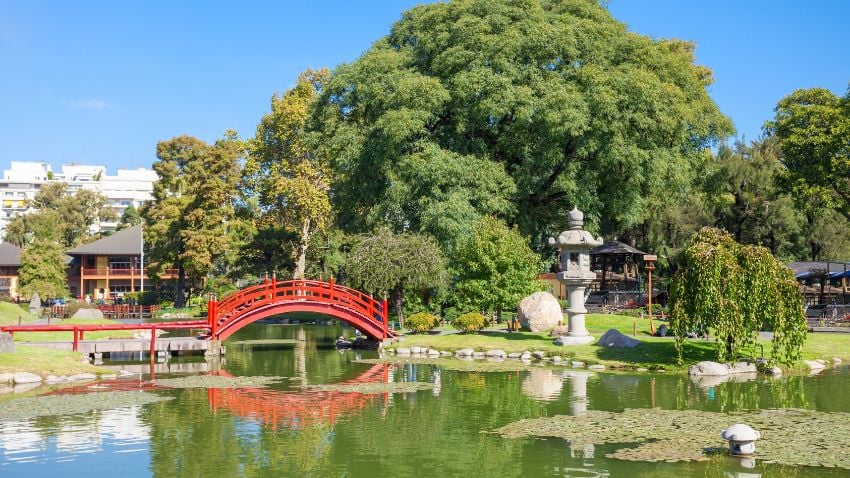
Japanese Gardens in Buenos Aires
Renowned for its vibrant culture and historic architecture, Buenos Aires stands tall as one of the safest cities in South America. Despite being a large metro area, it offers visitors an exhilarating blend of safety and adventure.
You may question how safe travelling is within this bustling capital city. Yet, with smart precautions, you can enjoy everything from tango performances to Malbec wine tastings without worry.
The key to staying safe lies primarily in awareness and common sense. Petty crimes like bag-snatching or pick-pocketing can occur anywhere, but keeping your belongings close will deter opportunistic thieves.
Taking taxis rather than public transportation at night further increases your personal safety. Although generally safe during daylight hours, after-dark travel on public transport presents more risks.
Navigating crowded areas such as San Telmo Market or Palermo's boutiques requires increased caution. Yet, by practising common-sense safety measures like avoiding walking alone late at night or keeping your belongings secure, you can savour Buenos Aires' charm without concern.
Don't forget, safe travel doesn't have to limit your fun. Whether you're captivated by the colonial architecture at Plaza de Mayo or immersing yourself in La Boca's vibrant streets, Buenos Aires delivers a thrilling South American experience where safety is easily attainable.
Embrace the vibrant culture of Buenos Aires, one of South America's safest cities. With smart precautions like being aware and using common sense, you can relish in tango performances or wine tastings without worry. Remember that caution doesn't limit fun but enhances your enjoyment while exploring architectural gems or navigating bustling markets.
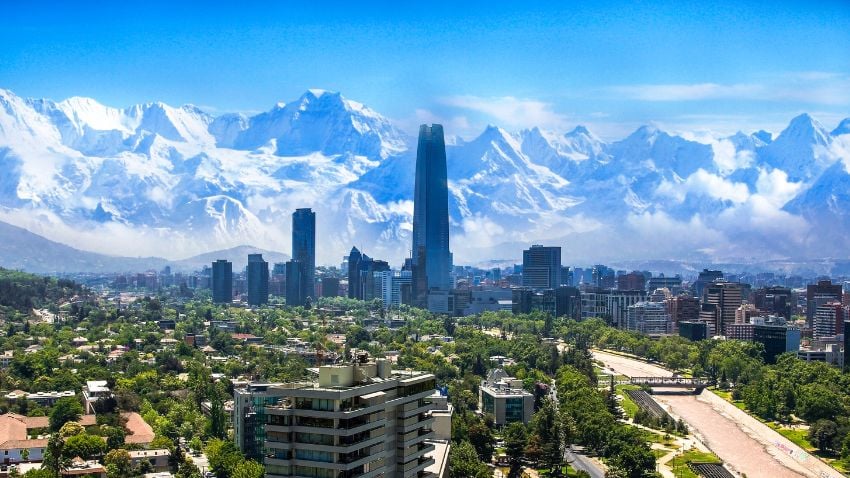
Santiago, Chile
When you think of safe South American countries, Chile stands out. It's home to the breathtaking Torres del Paine National Park, a spectacle of natural beauty renowned worldwide.
Tucked away in southernmost Patagonia, the Torres Del Paine offers vistas that can leave even seasoned travellers spellbound. But visiting this iconic landmark requires some precautions for a truly memorable experience.
The park stretches across 1810 square kilometres and includes soaring mountains, glistening glaciers, lush forests and electric-blue icebergs. The diverse terrain demands an alert mind; situational awareness is crucial for personal safety when exploring any part of it.
Packing right plays a key role, too. With weather known to change drastically within minutes, carrying warm clothes and rain gear helps keep discomfort at bay while letting you soak in the stunning landscapes without worry.
Safety extends beyond just physical well-being here. Given its status as an international biosphere reserve by UNESCO since 1978, visitors are expected to respect local flora and fauna—practising responsible tourism ensures your actions don't harm this unique ecosystem or disrupt wildlife habitats.
Travel Tip:
Maintain a respectful distance from wild animals encountered during hikes;
Avoid feeding them or trying to touch them;
Littering isn't merely frowned upon—it could result in hefty fines.
Torres del Paine National Park is indeed a sight to behold, and being mindful of these simple precautions can make your visit both safe and unforgettable. As an expat or traveller, you're not just witnessing Chile's natural beauty but becoming part of its preservation, too.
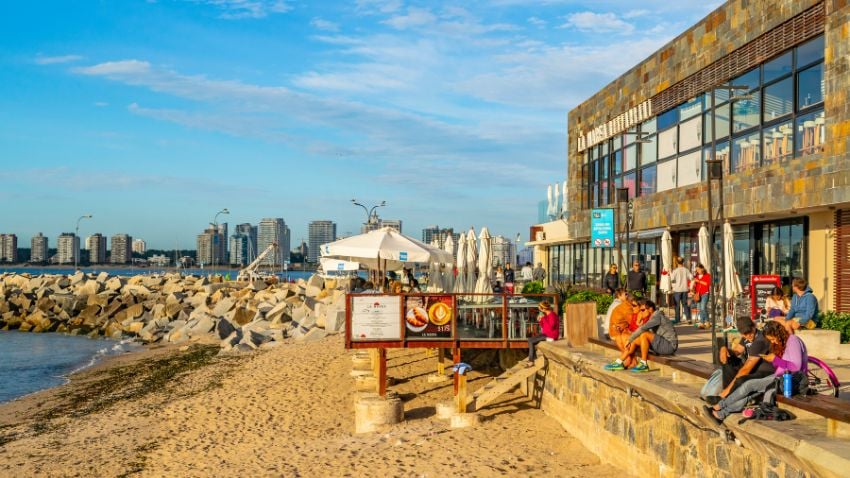
Punta Del Este, Uruguay
Often overlooked, Uruguay ranks as one of the safest countries in South America. Its vibrant cities and exciting places make it an enticing destination for those seeking a secure yet thrilling adventure.
Punta Del Este is famous for its sandy beaches and dynamic nightlife. To ensure your safety, remain vigilant and alert to your environment at all times while in Punta Del Este.
Avoid travelling at night if possible to ensure maximum security during your visit. Instead, enjoy the stunning sunset views from one of the many beachside bars or restaurants.
Road trips are another great way to explore this region but stick with traffic whenever possible. Large gas stations provide fuel and well-lit areas that can offer added safety on your journey.
In addition to these measures, always have emergency contacts readily available should any unforeseen situations arise – because even in safe havens like Uruguay, incidents can occur unexpectedly.
If exploring larger cities such as Montevideo or Salto, practice increased caution, especially when using public transportation or walking through crowded metropolitan areas where petty theft could be a concern;
Avoid isolated areas whenever possible; they may pose a safety concern due to lack of visibility or increased chances of crime;
For wine enthusiasts looking forward to tasting Uruguay's famous Tannat wines, remember that drinking responsibly contributes not only to your health but also to your personal security. Enjoy the Malbec, but stay aware.
Ultimately, remember that while Uruguay is generally safe for travellers, it's always essential to stay alert and aware.
Uruguay offers a secure yet exciting South American adventure, from vibrant cities to stunning beachside spots like Punta Del Este. Keep safe by staying alert and aware, especially in crowded areas or while enjoying Uruguay's famous wines. Remember that even in relatively safe places like Uruguay, it's always important to share your location with loved ones back home for added protection.
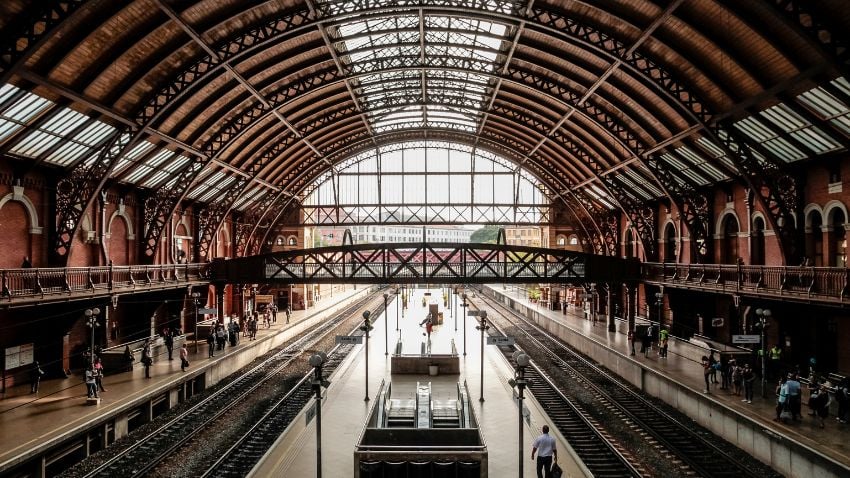
Light Station in São Paulo, Brazil
Travelling through the larger cities of South America can be an exciting adventure, but staying safe requires a bit more caution. As with any large metro area around the globe, crime occurs more frequently in metropolitan areas than in rural regions.
In these larger cities like São Paulo or La Paz, practice common-sense safety measures. Avoid walking alone at night, especially in isolated areas, and always stay aware of your surroundings. These precautions help you avoid petty theft, which is common here and globally.
Petty theft often happens when tourists let their guard down. Always keep an eye on your belongings because thieves are quick-handed.
Beware of popular scams aimed at unsuspecting visitors, such as rigged taxi meters or counterfeit money exchange tricks. Using reliable public transportation systems could save you from unnecessary stress during your journey.
Civil unrest occasionally arises due to political tension within certain regions; for instance Bolivia's Santa Cruz region experienced such incidents recently. However, it doesn't mean that travel should be completely avoided - just approached with increased caution and knowledge about ongoing issues.
Despite the risks, don't let this deter you from experiencing all South America has to offer. Instead, embrace the chance to explore the awe-inspiring Andes Mountains and savour Malbec wine while surrounded by stunning colonial architecture. Remember, every travel destination has its risks, and South America is no exception.
Exploring South America's larger cities can be thrilling, but calls for a bit more caution. Practise common-sense safety measures and stay alert to avoid petty thefts. Be wary of scams like rigged taxi meters or dodgy money exchanges. Stay informed about potential civil unrest situations through reliable sources such as the UK Foreign Office advisories. But remember, don't let these warnings stop you from enjoying your adventure.
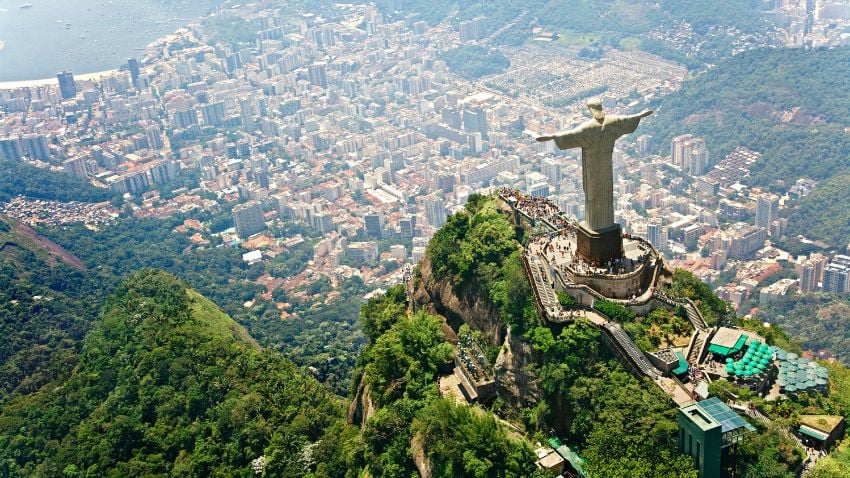
Christ the Redeemer on Corcovado, Rio de Janeiro, Brazil
South America is an enticing destination, right? It's packed with vibrant cultures and breathtaking natural beauty. Yet, it's essential to know about the safe places to visit in South America.
You've now explored how safety varies across countries like Argentina, Chile and Uruguay. You've delved into specifics of cities such as Buenos Aires or Punta Del Este.
Avoid walking alone at night in large metro areas; practice common-sense safety against petty thefts - these are crucial takeaways from this guide. Staying safe doesn't mean sacrificing adventure!
Road trips through Patagonia itineraries or a stroll amidst colonial architecture - whatever your choice may be, remember that increased caution goes hand-in-hand with memorable journeys.
The next time you plan a trip down south, remember that staying informed is vital! With careful planning and heightened awareness, South American travels can indeed be both thrilling and secure.
If you want the best intel from the expat world, including profitable offshore opportunities, little-known tax-saving strategies, and hard-won insights on immigration, passports, and Plan-B residencies, all delivered to your inbox every single week, then join our daily correspondence, EMS Pulse®. Currently enjoyed by over 84,000 expats and expat-hopefuls worldwide. Fill in the form below to join our newsletter free:

Written by Mikkel Thorup
Mikkel Thorup is the world’s most sought-after expat consultant. He focuses on helping high-net-worth private clients to legally mitigate tax liabilities, obtain a second residency and citizenship, and assemble a portfolio of foreign investments including international real estate, timber plantations, agricultural land and other hard-money tangible assets. Mikkel is the Founder and CEO at Expat Money®, a private consulting firm started in 2017. He hosts the popular weekly podcast, the Expat Money Show, and wrote the definitive #1-Best Selling book Expat Secrets - How To Pay Zero Taxes, Live Overseas And Make Giant Piles Of Money, and his second book: Expats Guide On Moving To Mexico.
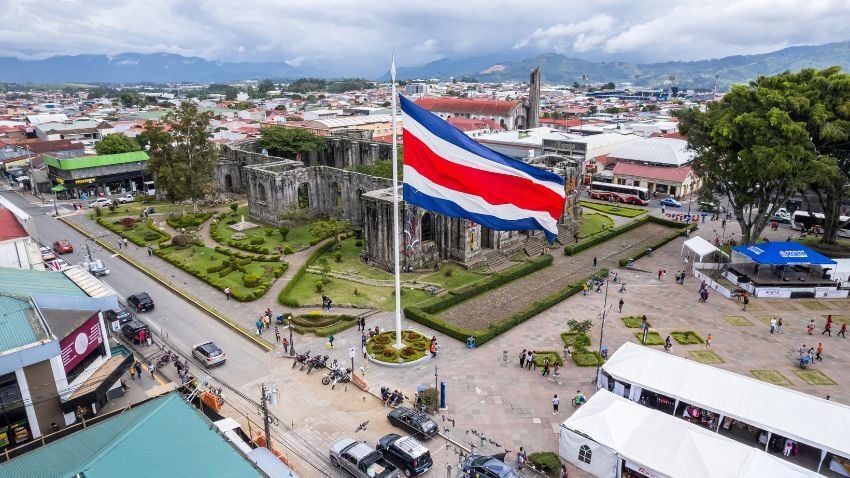
Costa Rica has become one of the most popular expat and digital nomad destinations in Latin America, known for its natural beauty, relaxed lifestyle,...

Mexico remains one of Latin America’s most compelling destinations, especially for North Americans. More than a million expats call it home, and tens...

South Korea is far more than K-pop and K-dramas. It is a country known for outstanding food, from bustling street markets to high-end dining, as well...